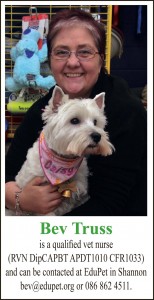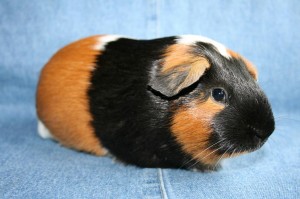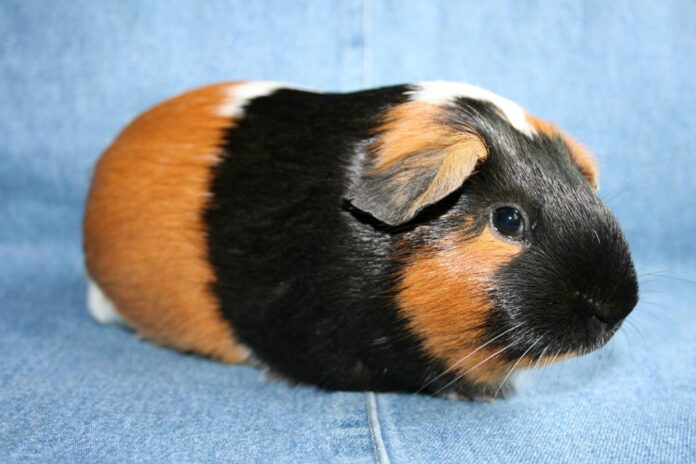
GUINEA pigs make fantastic pets for children and adults, as they are happy, sociable little animals that “talk” back and can be house-trained.
The young are born exact replicas of their parents, with eyes open, full coat and able to run around. The young should be handled very gently and carefully from around two weeks old to get them socialised and used to people. When a sow is pregnant, her need for Vitamin C doubles and as guinea pigs cannot synthesis the vitamin, it is important that we provide it every day in their food. A Vitamin C tablet dissolved in their water, rosehip syrup or blackcurrant juice is a useful addition to their diet.
Feed a good-quality commercial food, like Supa Guinea, once a day in small amounts, along with good quality vegetables and some fruit. Lettuce can be harmful if fed in large quantities and overfeeding green food can cause an upset in the gut. Do not feed straight from the fridge, as this will cause tummy upsets or cause them to go off their food altogether.
New foods should be introduced a little at a time to get them used to it. Fresh cabbage, broccoli, spinach carrots and beetroot are all favourite foods and lots and lots of hay and grass. Pick grass for them every day, even in the winter, but never feed grass from the lawnmower box as this is too short and may get caught in their throat, causing them to choke. Guinea pigs should not be fed rabbit food, as they have different nutritional requirements.
Guinea pigs are really sociable animals and should be kept in large family groups but be sure to have the males neutered to prevent fighting and any unwanted pups. You should have a good size run outside for them, as they need sunshine to help synthesis their daily requirement of Vitamin C. This run should be dog and cat proof and also have a shelter, built off the ground, to keep them out of the rain.
Corrugated plastic pipes or large plant pots to hide in will help them feel safe, should cats or dogs or other predators frighten them. They love plastic flowerpots to throw around and will even sit in the bigger ones. Fill plastic tubes with hay and other types of favourite foods.
Change their furniture around every couple of days to keep them stimulated and give them more to investigate. Exercise also plays a great part in keeping their bones strong and keeping them healthy. Everybody likes to play in the sunshine, so why would our pets be any different? You can even grow your own guinea pig and rabbit garden; they will love their own special place.
Bring them inside on cold, winter months; they can be put into a garage or shed but make sure there are no fumes from petrol or exhaust fumes from the car, as this will cause them to become very ill and could prove fatal. The more space you can give them the better, both inside and out.

In the wild, much of their day is spent foraging for food but in captivity, their food is presented to them without the need for too much hard work on their part. Think about how your guinea pigs might benefit from having to work a bit harder for their food. You can invent ways to make them work for their food. Don’t just put their food in a bowl in front of them; hide it around their enclosure so they have to look for it. Hiding treats or food in cardboard tubes or plastic food balls can make them spend more time trying to get food. As well as relieving boredom, it keeps them fit.
Fruitwood, like apple or pear trees, provides great knawing branches. This will help to keep their teeth short and stop them from overgrowing.
Hygiene is very important. The run and hutch should be thoroughly cleaned at least once a week. Droppings and old food should be removed every day, as well as checking the run and enclosure for damage.
Motoring editor - The Clare Champion
Former Chairman and voting member of Irish Motoring Writers' Association

